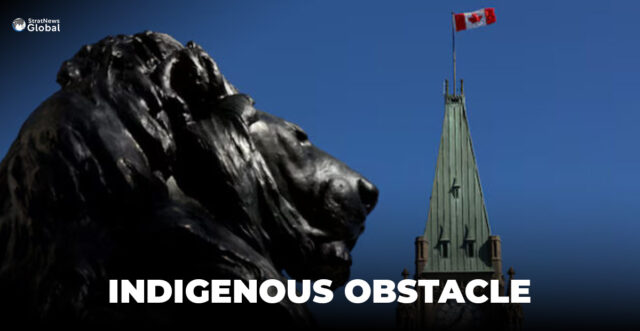A group of First Nations communities in Canada has moved the court with a constitutional challenge against newly passed legislation aimed at fast-tracking approvals for infrastructure projects such as mines and oil pipelines. They argue that these new measures go against the government’s constitutional obligations towards the Indigenous peoples.
The two new laws — one in the province of Ontario and one at the federal level — “represent a clear and present danger to the Applicant First Nations’ self-determination rights” and violate the government’s obligation to reconcile with Indigenous peoples, according to a notice filed in Ontario Superior Court on Monday.
9 First Nations Join Hands
The nine First Nations involved in the lawsuit are located across Ontario and comprise Alderville First Nation, Apitipi Anicinapek Nation, Aroland First Nation, Attawapiskat First Nation, Fort Albany First Nation, Ginoogaming First Nation, Kitchenuhmaykoosib Inninuwug, Oneida Nation of the Thames and Wabauskang First Nation.
Parliament passed the federal legislation speedily late last month. It would let the government select infrastructure and resource projects in the “national interest” and then decide whether some laws apply to them.
Special Economic Zones
Liberal Prime Minister Mark Carney aims for the law to fulfill a campaign promise to speed up approvals of what he calls nation-building projects, including mines and oil pipelines.
The Ontario law, passed in early June, allows the government to declare “special economic zones” that make some projects exempt from other provincial laws.
Environmentalists oppose both laws, saying they sidestep legislation meant to mitigate ecological harms while Indigenous groups argue they run roughshod over their rights to self-determination and the government’s duty to consult.
The national law lets Canada “unilaterally ram through projects without meaningful engagement with First Nations,” the court filing reads.
Carney’s Upcoming Meeting
Canada is committed to upholding its commitments and obligations to Indigenous peoples, a spokesperson for Canada’s Privy Council Office wrote in an email, adding that Carney will meet with First Nations, Inuit and Metis in coming weeks.
“Canada’s goal is to pursue projects in the national interest in partnership with Indigenous Peoples,” the email said. “Indigenous equity participation in major projects is a central focus of this initiative.”
The Ontario government said it has begun talks with First Nations aligned with its economic development goals and will continue consultations this summer.
(With inputs from Reuters)





